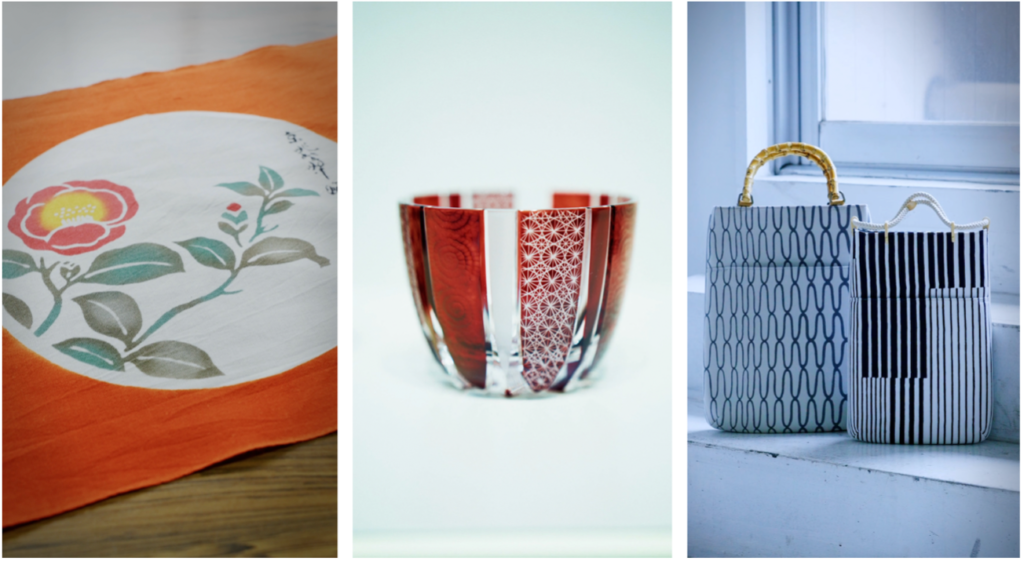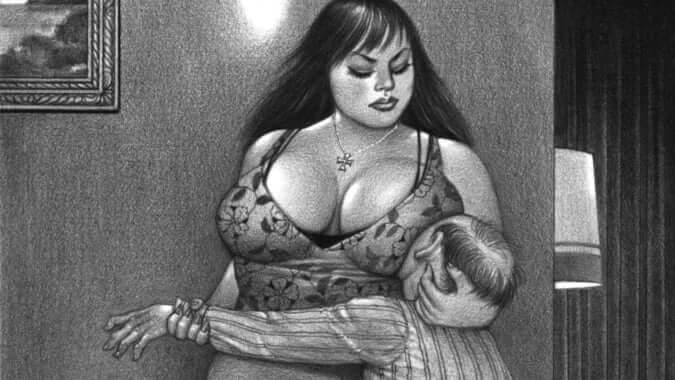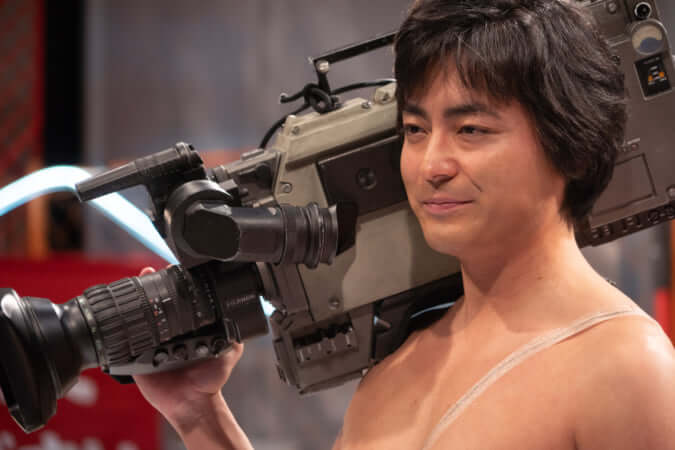Finding Hints for a New Level of Lifestyle on Tokyo Edo Kirari’s Official Instagram
The Edo Tokyo Kirari Project was started with the idea of passing on the famous products of historic shops and the techniques of artisans to future generations.

With the concept of “old meets new”, 22 model businesses that are undertaking projects suitable to a modern lifestyle are participating as representative brands of Tokyo.
Marukyu Shoten’s handbags, Chikusen’s handkerchiefs, Hanashyo’s large sake cups, and many other products made with traditional techniques are sophisticated and elegant while in many cases also showcasing colorful, modern designs. They have an appeal to them that makes you want to pick them up and share them with others.
The project’s official Instagram videos will introduce many such products and creations, along with the ideas of the businesses that create them.
Subtly working such products into your surroundings will lend your lifestyle that extra level of quality.
Marukyu Shoten
Marukyu Shoten was founded in Meiji 32, or 1899.
This wholesaler carries many products dyed using a unique Japanese dye-blocking technique called “chusen”, which was much beloved by Edo residents. The video shows how the garment patterns used in chusen are chosen, as well as introducing some of the shop’s modern products.
View this post on Instagram
Takahashi Kobo
Established more than 160 years ago in the Edo period, Takahashi Kobo has been making Edo woodblock prints for generations.
The shop additionally enjoys a good reputation as a publisher, and they have preserved their techniques while also offering creative works suitable to a modern lifestyle. This video introduces many works that have gained support among the younger generation, such as Makiko Sugawa’s erotic woodblock prints and ukiyoe prints by Peko-chan.
View this post on Instagram
Toshimaya Honten
Toshimaya Sake Shop was founded as a sake store and izakaya in Kanda Kamakurakashi in Keicho 1 (1596).
In this video, an international host visits the Toshimaya Sake Shop that opened in 2020 and introduces us to their popular sake and food.
View this post on Instagram
Eitaro Sohonpo
Eitaro Sohonpo was established in 1818 and brought joy to the taste buds of Edo’s people. The international host reports on the shop’s kintsuba confection, which has been made the same way since the shop’s founding. Many other products appear that are so cute you’ll want to take them home with you.
View this post on Instagram
Chikusen
Using stencils passed down from the Edo period and traditional patterns, Chikusen continues to make products that incorporate modern design.
In addition to yukata and Edo komon kimono, the video focuses on items such as dresses and bags that adapt traditional techniques and patterns, lending a stylish Japanese design to your everyday lifestyle.
View this post on Instagram
Hanashyo
Hanashyo carries on the tradition of using Edo kiriko—a traditional craft established in Nihonbashi at the end of the Edo period—in its own original designs and techniques. As you watch the video, look out for Hanashyo’s original works such as “Kometsunagi”, which contains a prayer for an abundant harvest, and “Hanafubuki”, which evokes hope for the long-awaited spring.
View this post on Instagram
Inquiries: Edo Tokyo Kirari Project
Instagram @edo_tokyo_kirari
edotokyokirari.jp/Edo Tokyo Kirari Online Store
store.kirari.metro.tokyo.lg.jp/TRENDING
-
Ishiuchi Miyako, A Singular Perspective on Women
Recipient of the 2024 Women in Motion Award, the photographer creates intimate portraits of women through the objects they left behind.

-
Recipe for Ichiraku Ramen from ‘Naruto’ by Danielle Baghernejad
Taken from the popular manga with the character of the same name who loves ramen, this dish is named after the hero's favourite restaurant.

-
Namio Harukawa, Master of Japanese SM Art
'Garden of Domina' offers a dive into the world of an icon of ‘oshiri’, whose work has now reached a global audience.

-
The Tattoos that Marked the Criminals of the Edo Period
Traditional tattoos were strong signifiers; murderers had head tattoos, while theft might result in an arm tattoo.

-
The Emperor of Japanese Porn is Now the Star of a Netflix Series
Deliciously funny, The Naked Director especially succeeds in reviving the atmosphere that was so characteristic of 1980s Japan.





